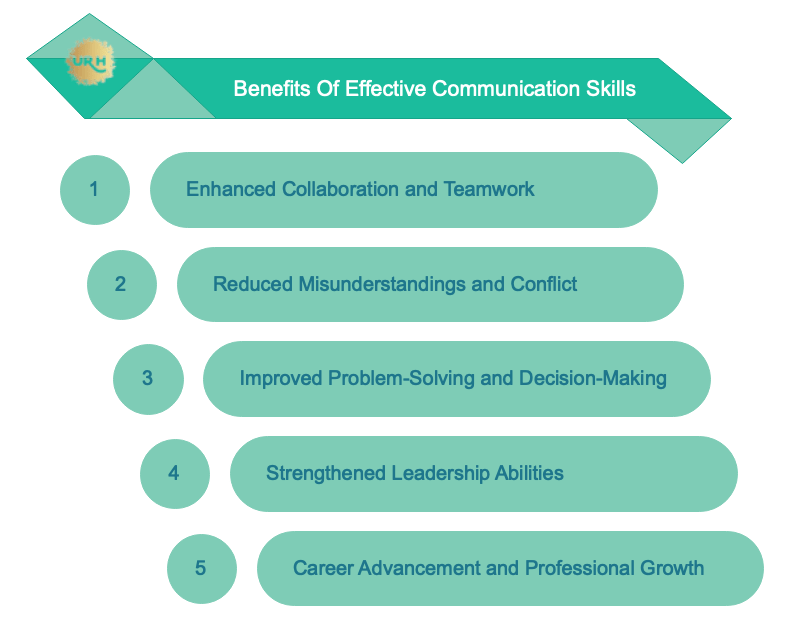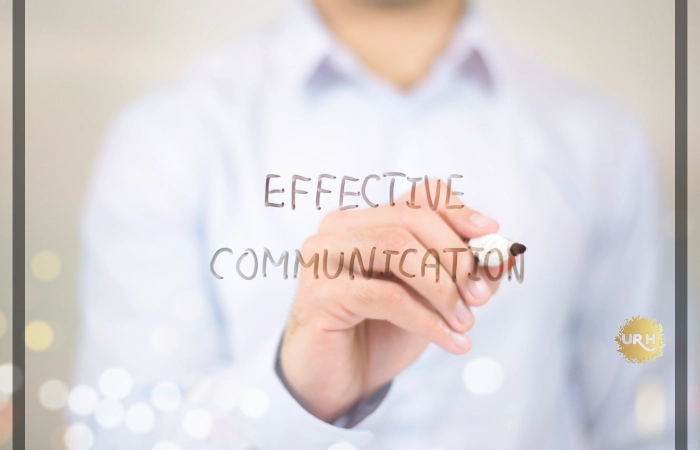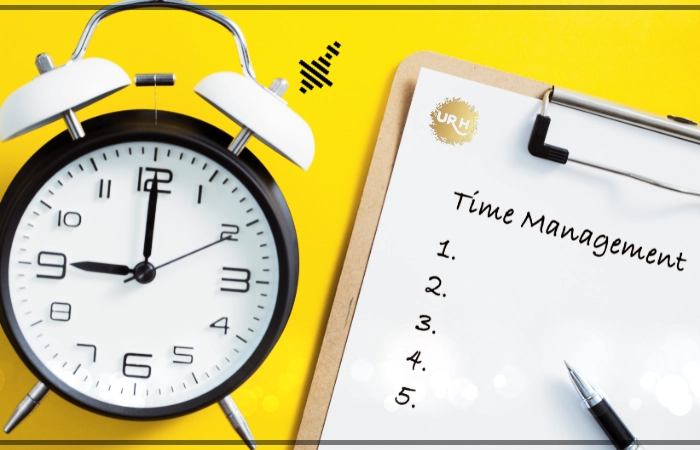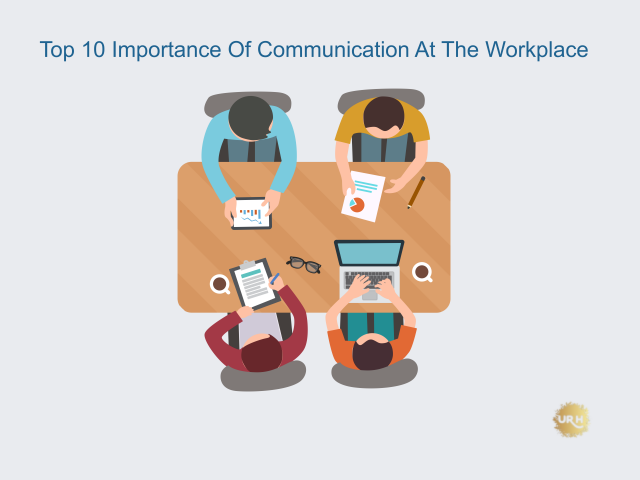Mastering The Art Of Effective Communication Skills At Work: Top 10 Skills To Succeed
We will love such a place where everyone understands each other and collaboration is happening seamlessly. In this kind of environment where ideas will be exchanged with clarity and precision, dreams come true right? You know, such an environment is the product of effective communication skills at work.
Effective communication skills are an important aspect of professional success. But a lot of time it is not given the required importance.
For all of us improving our communication skills can help us get those opportunities where we can grow and have better professional relationships.
There are many ways and means by which you and I can improve our effective communication in the workplace.
My intent is to help you with my top 10 chosen examples of required effective communication skills at work.
What Is Effective Communication in the workplace?

So, what exactly do we mean by effective communication skills?
It is not only about simply conveying information/message; it is also about the ability to express ideas clearly to your teammates and colleagues.
When you are in a conversation it is equally important to understand and empathise with others and adapt your own communication style to different situations.
Let’s see what are other aspects of communication where you need to focus, like listening, understanding, non verbal cues. These skills serve as the basis of successful interactions within individuals or groups in the workplace, encouraging team collaboration and productivity.
Imagine a workplace where colleagues struggle to understand each other, messages are misinterpreted, and conflicts arise due to poor communication.
Such an environment can hinder progress, create misunderstandings, and even damage professional relationships.
Clear communication between colleagues ensures that everyone is received the message in the same way. Clear communication also facilitates the exchange of ideas, and helps teams and team members to work towards shared goals.
When teams and team members understand the issues correctly, it enhances the problem-solving abilities of people and reduces errors/conflicts.
This will help to produce mutually agreed solutions for the group I need help to enhance productivity.
In short, effective communication skills at work are must have for successful professional relationships, teamwork, and personal growth.
Top 10 effective communication skills at work To Succeed
1. Active Listening:

When you are fully focused on the what speaker/other person wants to say, you are not just hearing but you are also observing his/her body language, that is what active listening is. When you are fully focused and genuinely trying to understand the message you are demonstrating empathy.
In the workplace, active listening plays a crucial role in effective collaboration and building trust between team members.
Active listening will also help in improving teamwork and reducing conflicts, as messages/ communication is understood very well by everyone.
While actively listening, you validate speakers message reducing the chances of misinterpretation and also you demonstrate respect for other’s opinions.
2. Clear and Concise Verbal Communication:
For verbal communication to be clear, thoughts and information must be expressed simply, or in a way that is simple for others to grasp, utilising the right vocabulary and tone.
Logical and constant thinking, avoiding jargon and needless complexity, and adjusting the message to the reader’s comprehension level are all required.
You may reduce misconceptions and make sure that your message is understood by others by being explicit in your communication.
3. Non-Verbal Communication:

1. Facial expressions, 2. Gestures 3. Eye contact is an example of nonverbal communication.. Sometimes we also refer to this as body language.
Nonverbal communication adds context to verbal communication and helps establish trust, credibility, and empathy with others.
4. Empathy:
Empathy is the person’s ability to understand and share the feelings and understand perspectives of others in a situation.
It involves actively putting yourself in someone else’s shoes, listening with compassion, and responding in a way that acknowledges their emotions. By practicing empathy, you create a supportive and inclusive work environment, build stronger relationships, and foster teamwork and trust.
5. Clarity in Written Communication:

When we write emails, reports, and prepare a presentation it’s all part of Written Communication.
Clarity in written communication involves structuring your message logically and using appropriate grammar and vocabulary.
You also need to ensure that your writing is concise and easily understood.
Effective written communication skill helps you to convey complex ideas, and document important information. It is important while maintaining professionalism in your interactions.
You also need to take care when it comes to writing to an individual or a group of people.
6. Conflict Resolution:
Emotional intelligence refers to the capability of a person to manage and control his/her emotions and have the ability to control the emotions of others as well.
A person must have emotional intelligence so that he is aware of how to behave and what to say during different emotional situations. When you understand the situation, you can have appropriate (according to the situation) interactions with your coworkers and colleagues by communicating in a way that it does not impact others’ emotions.
7. Emotional Intelligence:
A person must have emotional intelligence and helps him/her to recognise, control, and empathise with the emotions of others.
You can create positive interactions with your coworkers and colleagues by communicating in a way that it do not impact others emotions. Emotional intelligence helps in enhancing self awareness, effective teamwork, and contributing to overall workplace performance.
8. Open-Mindedness:
The ability to consider many viewpoints, ideas, and feedback without bias is known as open-mindedness. It promotes a culture of invention, creativity, and ongoing learning because everyone taking part is open to new ideas and doesn’t pass judgment on others.
9. Adaptability:

Adaptability is a person’s ability to adjust his/her communication style and approach based on the needs of different situations and individuals.
One style one way of communication may not work for everyone. It allows you to connect with a wide range of people, navigate change effectively, and maintain effective communication even in challenging circumstances.
10. Feedback and Constructive Criticism:
Providing and receiving feedback is a crucial communication skill in the workplace as each one of us will come to know what are our strengths and weaknesses.
Sometimes you may go beyond the cause and help the other person, by providing valuable feedback. Also being open to receiving feedback, you contribute to a culture of continuous growth and development.
Effective Communication Skills – Benefits

The 7 Cs Of Communication
We all have seen movies of aliens coming to our world, and no surprise most of them start with communication reaching each other.
So, it shows the power of communication and the need to understand some attributes that can help you while communicating your message.
Now we are not talking about communicating with aliens here, but to our co-workers and colleagues so that our message is delivered the way we want. The 7 C’s of communication are 7 attributes, lets see each one of them
Let me tell you these are not in a particular order but the way I remembered it.
List of 7 Cs of Communication
- Clear
- Correct
- Complete
- Concise
- Concrete
- Coherent
- Courteous
Clear
A simple and easy to understand message is the goal of the first C of 7 C’s of Communication. Ensure you understand the audience/person to whom you want to deliver the message and appropriately make the choice of your words to deliver the message.
The idea here is to help others to get your message the way you want and not leave them to guess what you wanted to say.
Concise
The second C of 7 Cs of Communication is about being to the point. Do not complicate your message use a few words and keep it to the point. Avoid using jargon and repeating the same message in a different form.
Being concise in delivering your message will also help to save you time which helps both parties.
Concrete
The next C is Concrete, while delivering a concrete message mostly you will use some facts and figures during the conversation.
So, this helps keep the message short but at the same time give a lot of details. A concrete message is very specific about details and to the point.
Help your audience to get the main points and any conclusions during the conversation.
Correct
Yes, you got it correct the next C in 7 Cs of Communication, before delivering a message validate your figures and facts, and also avoid grammatical errors.
You will be looked at as a credible person if your message conveys the right facts and figures. There is the old quote “Figures Won’t Lie”
Coherent
The next C is about not jumping while delivering your message back and forth, ensuring your message is well structured logically and delivered in the flow.
Whatever you want to deliver next sentence if your audience is not with you they will miss the message. So consider structuring your message in advance and then deliver.
Courteous
This is about understanding that we all love to hear which respects each other. So your message should be friendly polite and professional.
So be honest and open in your conversation and people will appreciate it. Understand your audience and think from their perspective and you will be more empathy towards their needs.
Complete
Yes this completes our seven C of communication and the last C about the having the message completed.
Do not leave the audience with lots of questions to ask, cover the point or topic in detail and with all required information. If you are expecting action, make sure at the end your message includes a ‘call to action’.
By learning and practicing these 7 Cs of communication I am sure you will find your messages are delivered more effectively.
FAQ – Effective Communication Skills at Work
What are effective communication skills in the workplace?
Effective communication skills in the workplace refer to the ability to convey information clearly, actively listen, understand non-verbal cues, and adapt communication styles to different situations.
Why are effective communication skills important in the workplace?
Effective communication skills foster better teamwork, collaboration, understanding, and leadership.
What are the 5 elements of effective communication skills?
The five elements of effective communication skills are clarity, conciseness, listening, non-verbal cues, and feedback.
What are the 7 effective communication skills?
The seven effective communication skills are active listening, clear and concise verbal communication, non-verbal communication, empathy, clarity in written communication, conflict resolution, and emotional intelligence.
Conclusion:
Effective communication skills at work are more important than ever. As we are living in the connected word we are constantly communicating with each other.
The ability to communicate clearly with others helps in a great way.
You can pick any one of above mentioned skills and start incorporating them into your daily communication.
As you go on practising it you will become a better communicator.







